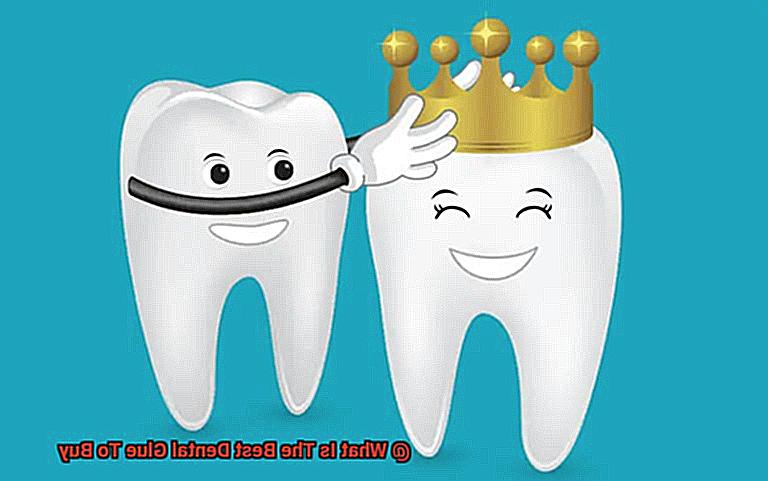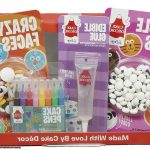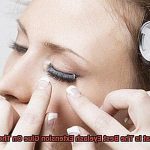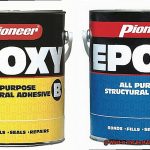Are you tired of dealing with dentures that just won’t stay in place? Sick of feeling self-conscious about your dental appliances slipping and sliding around? Well, fret no more because we’ve got the inside scoop on the best dental glue money can buy. In this blog post, we’ll dive deep into the world of dental adhesives and reveal the top contenders that will keep your pearly whites firmly in place.
Whether you’re a seasoned denture wearer, rocking braces, or simply need to secure a broken tooth or crown, we’ve got you covered. With so many options out there, it’s easy to get overwhelmed. But fear not. We’ve done all the legwork for you and narrowed down the field to only the most durable, user-friendly, and affordable dental glues.
So buckle up and get ready to discover the adhesive that will revolutionize your smile. No more embarrassing slips or uncomfortable moments. It’s time to find your perfect match and say goodbye to dental mishaps once and for all. Let’s dive in and find the ultimate dental glue that will keep your smile intact and worry-free.
Adhesive Strength
Contents
In the world of dental restorations, adhesive strength reigns supreme. It is the mighty force that holds crowns, bridges, and dentures securely in place, ensuring the success and longevity of these treatments. Join us as we delve into the fascinating world of adhesive strength, exploring its factors and techniques for achieving optimal results.
The Composition that Counts:
At the heart of adhesive strength lies the composition of dental glue. Resin-based adhesives, a powerful amalgamation of monomers and polymers, take center stage due to their exceptional bonding properties. These dynamic materials join forces to form a robust bond with the tooth structure, ensuring that restorations remain steadfastly in place.
Preparing for Success:
To maximize adhesive strength, meticulous tooth preparation is vital. A clean slate is essential before applying dental glue, requiring thorough removal of debris, plaque, and residual cement from previous restorations. By creating a pristine and smooth surface, the adhesive can forge an unyielding connection with the tooth structure, elevating its adhesive prowess.
Techniques that Empower:
The application technique used for dental glue is a crucial factor in achieving optimal adhesive strength. Dentists adhere to specific manufacturer guidelines that serve as their compass. These guidelines may include applying the adhesive in layers, utilizing specified curing methods, or incorporating bonding agents for enhanced adhesion. By following these techniques diligently, the adhesive is applied evenly and securely, optimizing its bonding capabilities.
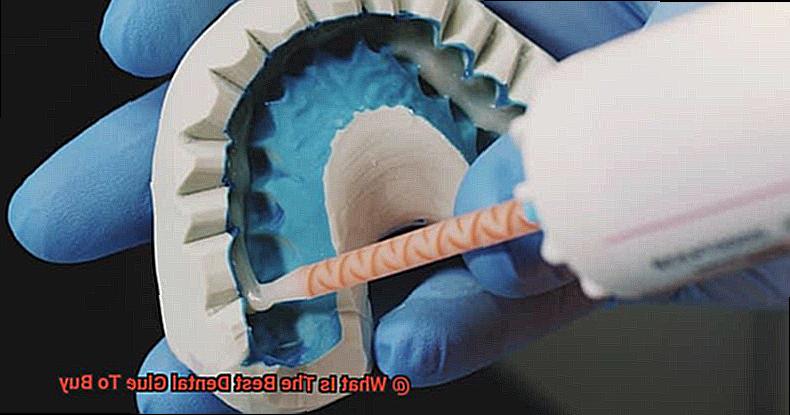
Tailoring Adhesive Strength to the Task:
Different dental restorations have varying requirements when it comes to adhesive strength. For instance, bonding a crown or bridge demands a stronger adhesive compared to affixing temporary restorations or dentures. Thus, dental professionals must assess each case individually and select an appropriate dental glue tailored to its unique needs and demands.
Ease of Use
Dental glues may just be the solution you’ve been looking for. These incredible products are designed to keep your dental restorations firmly in place, giving you the confidence to eat, speak, and smile without any worries. But what makes dental glues so easy to use? Let’s dive into the various factors that contribute to their user-friendly nature.
First and foremost, the consistency of dental glue plays a crucial role in its ease of use. Imagine trying to apply a runny or thick glue – it would be a messy disaster. Thankfully, dental glues are formulated with a smooth and creamy texture that allows for effortless application. No need to worry about messy mishaps or struggling to control the glue.
Another aspect that contributes to the ease of use is the applicator. Dental glues come with user-friendly applicators that make precise placement a breeze. Whether it’s a brush or a nozzle, these applicators ensure that you can easily apply the glue exactly where you need it, without any fuss or guesswork.
Time is precious, and that’s why dental glues have a quick drying time. You don’t want to spend ages waiting for the glue to set, but you also don’t want it drying so fast that you can’t make any adjustments. Dental glues strike the perfect balance, drying quickly enough to save you time but allowing for some wiggle room to ensure proper alignment of your dental restorations.
Now, let’s talk about removal. Nobody wants to deal with a glue that requires special solvents or tools for removal. Dental glues are designed to be easily removed without causing any damage to your teeth or gums. Simply follow the instructions provided by the manufacturer, and you’ll be able to remove the glue hassle-free.
Speaking of instructions, clear and concise guidelines are essential for ease of use. Dental glue manufacturers understand that not everyone using their products is a dental professional, so they provide step-by-step instructions on how to apply the glue correctly. They also include information on drying time, how much glue to use, and any precautions or warnings to ensure optimal results.
Safety
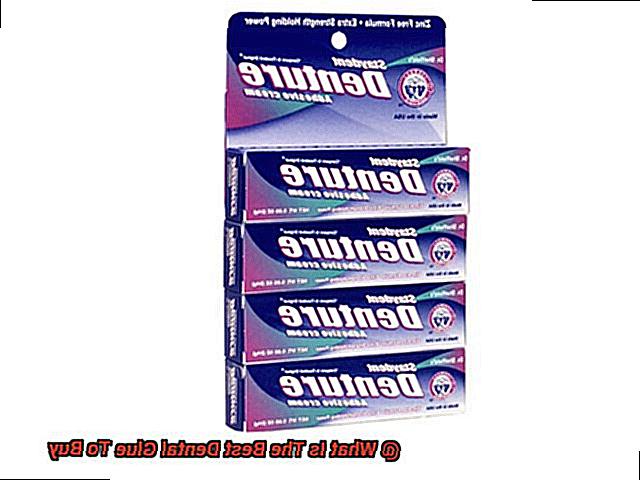
When it comes to selecting dental glue, prioritizing safety is of utmost importance. After all, this adhesive will directly interact with your mouth, so it must be safe for oral use. Here are some vital considerations to keep in mind when choosing dental glue:
- Toxic substances: It is imperative to ensure that the dental glue you choose is free from harmful chemicals or toxins. Avoiding these substances is crucial because they can cause irritation or other adverse reactions in the mouth. Opt for a dental glue that has been tested and certified as safe for oral use.
- Biocompatibility: Look for a dental glue that is biocompatible, meaning it can interact harmoniously with living tissues without causing any negative effects. This property reduces the likelihood of allergic reactions or tissue damage in your mouth. Prioritize dental glues that have been specifically designed to be biocompatible.
- Tooth-friendly: The dental glue should adhere securely to the tooth surface without causing any damage. Some adhesives may weaken or erode tooth enamel over time, leading to dental issues. Therefore, it is important to choose a dental glue that provides a strong bond while also being gentle on your teeth. Look for products that are specifically formulated to be tooth-friendly.
- Follow instructions: To ensure maximum safety and effectiveness of the dental glue, always follow the instructions provided by the manufacturer for safe and proper use. These instructions may include recommendations for cleaning and preparing the tooth surface before applying the adhesive, as well as guidelines for removing excess glue or dealing with any potential complications. By adhering to these instructions, you can prevent any potential harm or complications.
- Consult a dentist: It is advisable to consult with a dentist before using any dental glue, especially if you have specific oral health concerns or existing dental restorations. A dentist can provide personalized guidance on choosing a safe and suitable dental glue based on your individual needs and circumstances.
Durability
Look no further than the unassuming dental glue. Though often overlooked, understanding the importance of durability when selecting dental glue can save you from countless dental mishaps and ensure a long-lasting, confident smile. In this enlightening blog post, we will delve into why durability is a crucial factor to consider when choosing dental glue.
Withstanding Everyday Wear and Tear:
Imagine savoring a delectable meal or engaging in a lively conversation, only to have your dental restoration come loose. The durability of an adhesive determines its ability to withstand the forces exerted during everyday activities like eating and speaking. By opting for a durable dental glue, you can rest assured that your restoration will stay firmly in place, allowing you to enjoy life without fear of embarrassing mishaps.
Defying the Elements: Moisture Resistance:
The mouth is a dynamic environment, with saliva flowing constantly. To maintain a secure bond between the restoration and the tooth, it is essential to choose a dental glue that can effectively resist moisture. A durable adhesive should be able to repel the relentless effects of saliva and other oral fluids, ensuring a long-lasting and dependable bond that survives even the wettest challenges.
Longevity Over Time:
Nobody wants to be plagued by constant worries about the stability of their dental restorations. Opting for a durable dental glue guarantees that your restoration remains steadfastly in place for an extended period. This longevity is especially crucial for permanent restorations like crowns or bridges, designed to endure the test of time and provide you with lasting confidence.
Composition and Formulation:
The ingredients utilized in dental glue play an integral role in determining its durability. Some adhesives incorporate specialized additives that enhance strength and resistance to wear and tear. Before making a purchase, take the time to scrutinize the composition and formulation of different products, as these factors can significantly impact their durability. Choose a dental glue fortified with the right ingredients to ensure a bond that stands strong against the trials of daily life.
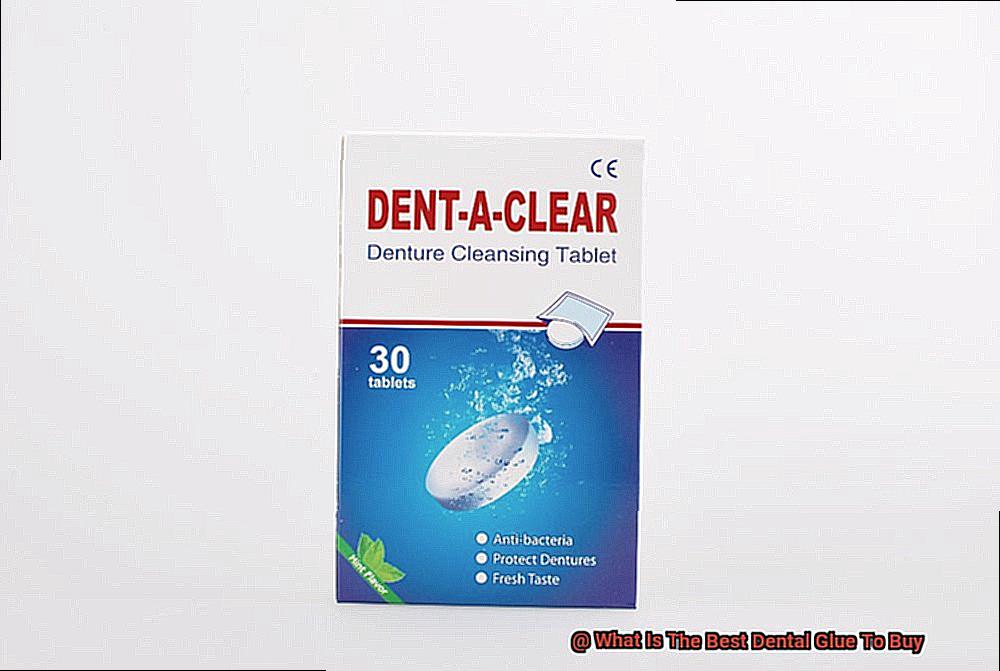
Seek Professional Recommendations:
While conducting personal research is crucial, consulting professionals and gathering feedback from other users is equally important. Dentists possess invaluable insights into the durability of different dental glues based on their expertise and patient experiences. Additionally, reading reviews from other users offers real-world perspectives that can help inform your decision, leading you to choose a dental glue that meets your specific durability needs.
User Reviews
User reviews are an essential aspect to consider when determining the best dental glue to buy. These reviews provide valuable insights from real consumers who have already used the product. By reading user reviews, potential buyers can get an idea of the glue’s effectiveness, durability, ease of use, and overall satisfaction.
When analyzing user reviews, it is important to look for patterns and common themes. Pay attention to the positive comments and see what aspects of the dental glue users liked the most. This could include factors like strong adhesive properties, long-lasting hold, or easy application. On the other hand, negative reviews can highlight any potential issues or drawbacks with the product, such as weak bonding capabilities or difficulty in removing excess glue.
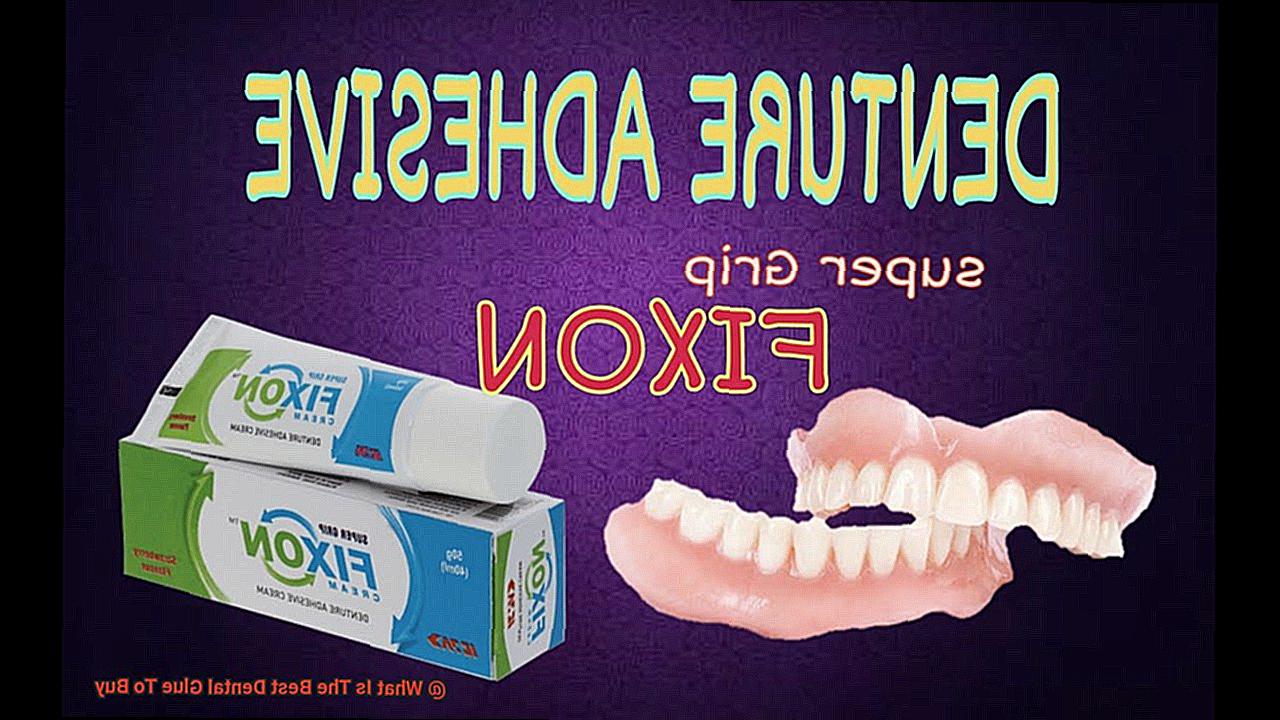
To ensure a more accurate representation of a product’s performance, it is crucial to consider the number of user reviews available. A small sample size might not provide enough information to make an informed decision. However, a significant number of reviews allow for the identification of trends and a more comprehensive understanding of customer satisfaction.
In addition to quantity, it is helpful to assess the credibility of the reviewers themselves. Look for verified purchases or indications that they have actually used the dental glue they are discussing. Reviews from reputable sources or well-known online retailers can also add credibility to their opinions.
It is important to keep in mind that user experiences can vary. What might work well for one individual may not necessarily work for another due to differences in oral hygiene practices, individual needs, or specific dental conditions. Therefore, it is advisable to read a range of user reviews and consider multiple perspectives before making a final decision.
Hypoallergenic Formulation
When it comes to choosing the best dental glue, there is one important factor that often gets overlooked – hypoallergenic formulation. Now, I know what you’re thinking – why should I care about hypoallergenic dental glue? Well, let me tell you, it’s more important than you might think.
Dental adhesives are used to secure dentures, bridges, and other dental prosthetics in place. But here’s the thing – some people have allergies or sensitivities to certain ingredients commonly found in these products. And trust me, you don’t want to find out the hard way that you’re one of those people.
That’s where hypoallergenic formulation comes in. Hypoallergenic dental glue uses ingredients that are less likely to cause an allergic reaction or irritation in individuals with sensitive skin or allergies. So if you’re someone who falls into that category, hypoallergenic dental glue is a must-have.
But what exactly makes a dental adhesive hypoallergenic? Well, it’s all about what’s not in it. Many dental adhesives on the market contain substances like methacrylates, which can cause adverse reactions in some people. These reactions can range from mild skin irritation to more severe symptoms like swelling and difficulty breathing. Not exactly what you want when you’re trying to secure your dentures in place.
That’s why hypoallergenic dental glues exclude ingredients such as latex, formaldehyde, and certain types of acrylics that are known to trigger allergic reactions. By using a dental adhesive with a hypoallergenic formulation, you can minimize the risk of experiencing these unpleasant side effects and ensure a comfortable and secure fit for your dental prosthetics.
- Now, I know what you’re thinking – how do I know if a dental adhesive is hypoallergenic? It’s simple – just read the product labels and look for key phrases like “hypoallergenic,” “latex-free,” or “free from common allergens.” And if you’re not sure, consult with your dentist or healthcare professional. They can provide valuable guidance in selecting the most suitable option based on your individual needs and sensitivities.
- But here’s something important to keep in mind – even if a dental adhesive is hypoallergenic, it’s still possible for you to have sensitivities or allergies to specific ingredients that are not commonly considered allergens. That’s why it’s always a good idea to perform a patch test before fully applying the adhesive, especially if you have a history of allergic reactions or sensitive skin.
Moisture Resistance
Choosing the right dental glue is crucial for a secure and long-lasting bond between dental prosthetics and natural teeth. Among the several factors to consider, moisture resistance stands out as a key consideration. Dental glue that possesses high moisture resistance ensures durability and reliability. Let’s explore why moisture resistance is so vital and how it can be achieved.
The Perseverance Against Saliva and Oral Fluids:
Dental glue is perpetually exposed to saliva and oral fluids throughout the day. Opting for dental glue with high moisture resistance guarantees that it can withstand this exposure without deteriorating or breaking down. This ensures that the bond between dental prosthetics and natural teeth remains intact, offering stability and preventing discomfort.
Water-Resistant Formulation:
Achieving moisture resistance involves selecting a dental glue that is water-resistant. A water-resistant dental glue maintains its adhesive properties even when subjected to water or saliva. This characteristic ensures a reliable bond by preventing the adhesive from being compromised by moisture.
Incorporation of Special Additives:
Dental glues with moisture resistance often contain special additives or ingredients that create a barrier against moisture. These additives may include hydrophobic materials like silicone or fluoride, which repel water and safeguard the adhesive bond. By utilizing such ingredients, dental glues enhance their moisture resistance capabilities, leading to long-lasting performance.
Dual-Cure System for Enhanced Performance:
Certain dental glues employ a dual-cure system, enabling them to be activated by both light and moisture. This unique feature enables these adhesives to set and cure even in the presence of oral fluids. The dual-cure system ensures that the dental glue remains effective and reliable, regardless of the moisture encountered during daily activities.
Assessing Long-Term Moisture Resistance:
While some dental glues may claim initial moisture resistance, it is essential to evaluate their ability to withstand long-term exposure to saliva and oral fluids. Reading product reviews, seeking recommendations from dental professionals, and consulting previous users can help ensure that the selected dental glue maintains its moisture resistance properties over time.
Food Particle Resistance
Food particle resistance is a vital characteristic to consider when selecting dental glue for bonding dental restorations. Dental glue, also known as adhesive, is used to attach dental restorations like crowns, bridges, or dentures to natural teeth or gums. The ability of the adhesive to resist food particles is crucial because it determines how well it can withstand the challenges posed by eating and drinking.
When we consume food, small particles can get lodged between our teeth and dental restorations. These particles can create a breeding ground for bacteria, leading to oral health problems such as cavities or gum disease. Therefore, it is essential for dental glue to have excellent food particle resistance to prevent these particles from getting trapped and causing harm.
There are several factors that contribute to the food particle resistance of dental glue. Firstly, the consistency of the adhesive plays a significant role. Dental glues with thicker consistencies are more effective at creating a barrier against food particles compared to thinner ones. The thicker adhesive can fill in any gaps or spaces between the restoration and the natural tooth surface more effectively, ensuring that no food particles can sneak their way in.
Secondly, moisture repellence is crucial for food particle resistance. Our mouths constantly produce saliva, which contains moisture. Dental glue with hydrophobic properties repels water and moisture, preventing them from weakening or compromising the adhesive bond. This is like having a superhero in the battle against food particles, as the adhesive remains strong and resistant to any sneaky entry attempts.
Durability is another factor that contributes to food particle resistance. Dental glue with high durability acts as an armored shield protecting your dental restoration. It can withstand the forces of chewing and won’t break down or wear off easily. This means that the adhesive bond remains strong and can resist the entry of any sneaky food particles.
Lastly, ease of cleaning plays a significant role in food particle resistance. Nobody wants to spend hours trying to remove trapped food particles from their dental restorations. Choosing a dental glue that is easy to clean and maintain is essential. An adhesive that allows for effortless cleaning prevents any buildup of bacteria and potential oral health issues.
HgPmIOvYi7s” >
Conclusion
In conclusion, when it comes to finding the best dental glue to buy, there are several factors to consider.
It is important to choose a dental glue that provides strong and long-lasting adhesion, ensuring that your dental prosthetics stay firmly in place. Additionally, look for a dental glue that is easy to use with clear instructions and a user-friendly applicator.
It should also be safe and non-toxic, as it will be used inside your mouth. Furthermore, consider the drying time of the dental glue – opt for one that sets quickly but allows for adjustments if needed.
Lastly, read reviews from other users and consult with your dentist for their recommendation.

